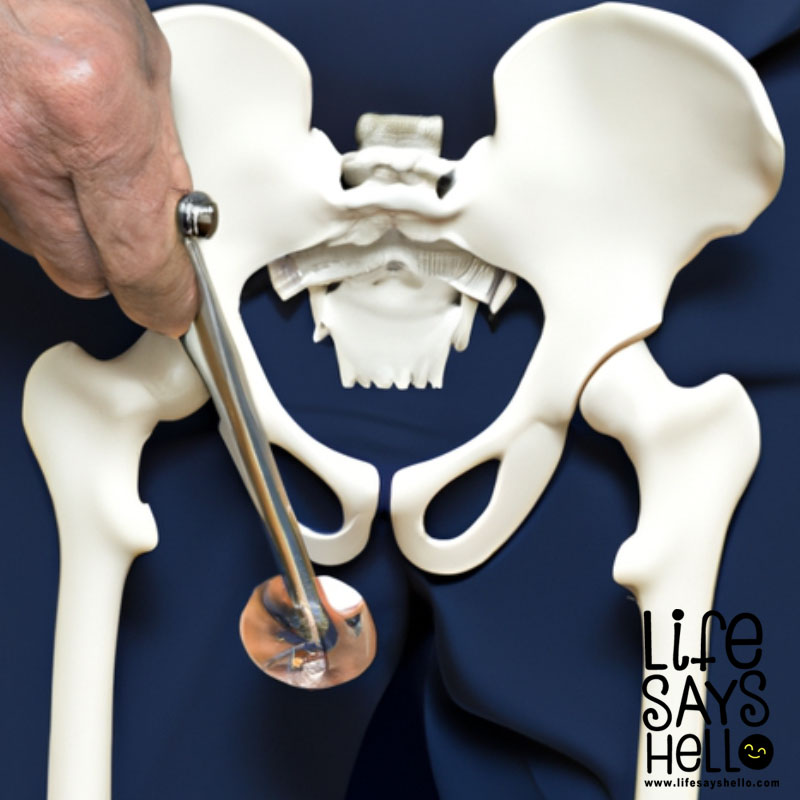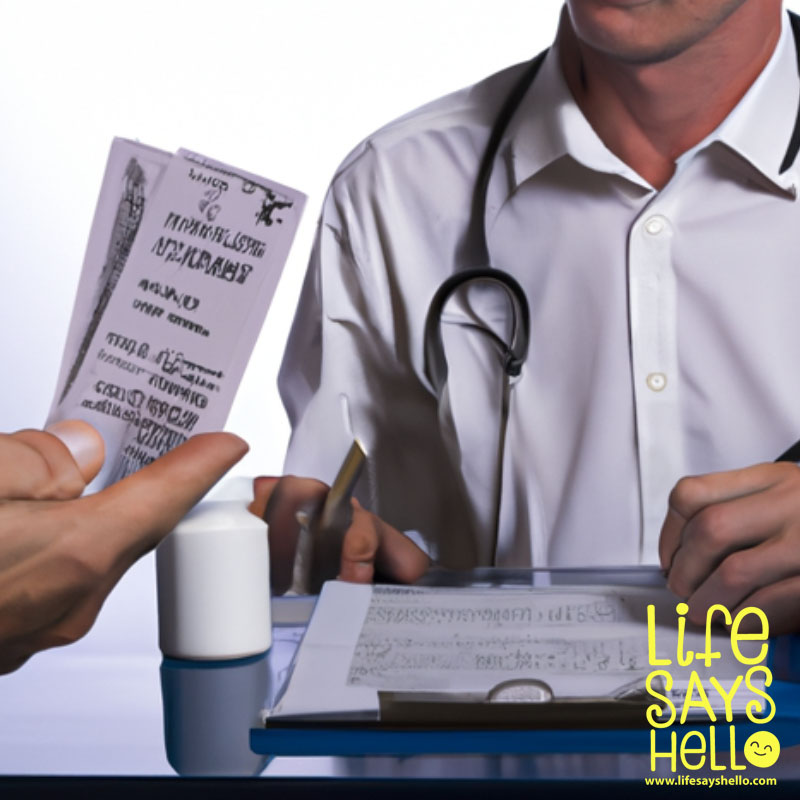13 Weeks Pregnant: What Symptoms to Expect at This Stage

You’ve just hit the 13 week mark in your pregnancy - congratulations! The end of the first trimester is within sight. At 13 weeks pregnant, you may notice some changes in your symptoms and bodily sensations as your pregnancy progresses. While every pregnancy is different, there are some common symptoms and experiences many women have around 13 weeks.
Let’s take a look at what you can expect with your body, emotions, and appetite at 13 weeks pregnant.
Morning Sickness Starts to Improve
One of the most welcomed changes at 13 weeks pregnant is that nausea and morning sickness often begins to subside around this time. For many women, the peak time for morning sickness is between weeks 9 and 12. As you enter the 13th week, your hormone levels start to even out and the queasiness diminishes.
While not every woman has severe morning sickness, an estimated 50-90% of pregnant women experience some degree of nausea and vomiting, especially early on. If you’ve been struggling with keeping food down or feeling ill throughout the day, you can look forward to some relief soon. Morning sickness tends to taper off anywhere between weeks 12 and 16.
Of course, some unlucky women do continue to experience morning sickness past the first trimester and even throughout the entire pregnancy. If your nausea and vomiting has been severe or doesn’t seem to be improving, be sure to talk to your doctor. You may need IV fluids or medications to help control it. Don’t assume some level of misery is unavoidable - there are treatments available to help you feel human again.
Your Sense of Smell Goes into Overdrive
One of the earliest signs of pregnancy for many women is a heightened sense of smell. At 13 weeks, you may find certain smells are becoming intolerable. Even pleasant scents might be too overpowering. What gives?
During pregnancy, your estrogen levels rise significantly. This increase in estrogen is thought to heighten your olfactory senses - aka your sniffing abilities. A more acute sense of smell is nature’s way of sending you signals about your environment. If certain smells elicit disgust or nausea, it’s your body’s way of steering you away from things that could be toxic or dangerous to your baby’s development.
While an enhanced nose can feel like a nuisance at times, look at the bright side - you might have an advantage at detecting potential hazards that could impact your pregnancy. Trust those maternal instincts if your nose tells you a food smells iffy or a product gives off chemical odors. Avoiding exposures to toxins is ideal for your little one’s growth.
Of course, you can’t avoid all smells for 9+ months. Carrying a small vial of essential oils like peppermint or lemon can help neutralize offensive odors when you’re out and about. Avoiding heavy colognes, air fresheners, or harsh cleaning products is also wise during this sensitive time.
Pregnancy Hormones Lead to Mood Swings
Ah, pregnancy mood swings. At 13 weeks pregnant, you may feel like you’re on an emotional rollercoaster as your hormones fluctuate rapidly. Some days you may be irrationally irritable. The next, you’re weepy over sad dog commercials. Chalk it up to the surge of hormones like estrogen, progesterone, oxytocin and hCG during pregnancy.
The hormonal tidal wave does more than wreak havoc on your emotions - it also leads to many of the physical changes and symptoms you’ll experience. So while mood swings feel unpredictable and exhausting at times, they serve a purpose in supporting your baby’s development.
Keep in mind that mood swings are temporary, even if they feel overwhelming in the moment. Take time for self-care when emotions run high - go for a walk, take a bath, or talk to a friend. Getting adequate sleep, eating well, and avoiding stress can also help level out mood ups and downs. Don’t be afraid to ask your partner or loved ones for extra patience and support during this time.
If mood swings become severe or you’re experiencing symptoms of depression or anxiety, speak up. Your doctor can connect you with resources to help manage challenging emotions for a healthier pregnancy. You don’t have to tough it out alone.
Pregnancy Gingivitis - Swollen, Bleeding Gums
Along with nausea, you may notice changes in your mouth around 13 weeks pregnant as well. Some women develop pregnancy gingivitis, which causes inflamed, tender gums that may bleed when brushed. It affects around 60-75% of expectant mothers.
Raging hormones are once again to blame. Increased progesterone levels during pregnancy causes increased blood circulation to the gums. This extra blood flow causes the gums to swell, become sensitive, and bleed easily. Progesterone also decreases your immune response, allowing more oral bacteria to flourish.
Pregnancy gingivitis usually surfaces sometime in the second trimester. Practicing good oral hygiene is important to keep gingivitis under control. Brush gently with a soft toothbrush and drink plenty of water. Avoid sugary foods that can feed bacteria growth. If brushing is painful, switch to a mouthwash approved for pregnancy. Be sure to get dental cleanings and checkups during pregnancy too.
Left untreated, gingivitis could develop into a more serious form of gum disease. Since gum disease has been linked to preterm labor, managing gingivitis is particularly important. Catching it early and taking steps to reduce inflammation and bacteria can go a long way in keeping your gums happy.
Growing Uterus Causes Round Ligament Pain
As your uterus expands to accommodate your growing baby, you may notice some abdominal twinges around 13 weeks pregnant. This discomfort is attributed to your round ligaments - the bands of tissue that provide support and stabilization for your uterus.
The round ligaments stretch as your uterus grows, which tugs on nerve fibers and causes brief, stabbing sensations on one or both sides of your lower abdomen. Moving suddenly or rolling over in bed can trigger this so-called “round ligament pain.”
While uncomfortable, round ligament pain is considered a normal part of pregnancy. To ease the sensations, rest with a pillow supporting your stomach, apply a warm compress to the painful area, or massage it gently. Changing positions slowly can help as well.
Though it’s generally harmless, be sure to mention any severe or persistent abdominal pain to your doctor to rule out issues like miscarriage or ectopic pregnancy. But occasional round ligament pain is to be expected as everything shifts and expands to accommodate your baby. The discomfort tends to lessen in the second trimester as the ligaments stretch more fully.
Headaches Plague Many Women at 13 Weeks
If you’re prone to headaches, you may find they occur more frequently around the 13 week mark. Headaches affect up to 39% of women during the first trimester. The rising hormone levels of early pregnancy are believed to play a role. Estrogen can directly impact receptors that stimulate headaches. Low blood sugar, stress, lack of sleep, and dehydration may also trigger them.
To minimize headaches during pregnancy, make sure you stay hydrated and get sufficient rest. Curb caffeine intake and eat small, frequent meals to maintain even blood sugar. Over-the-counter acetaminophen is considered safe for treating pregnancy headaches, but check with your provider first.
Let your doctor know if headaches are persistent or accompanied by other symptoms like vision changes or swelling. While headaches themselves are not dangerous, your provider will want to rule out potential complications like preeclampsia. But in most cases, pregnancy headaches are an annoyance that should fade by the second trimester. Hang in there!
Nosebleeds Pop Up Thanks to Increased Blood Volume
Don’t be surprised if you find a bit of blood dripping from your nose around 13 weeks pregnant. As the estrogen and progesterone levels rise, the tiny blood vessels inside your nose dilate and enlarge. Combine this with the increased blood volume circulating during pregnancy, and you have the perfect recipe for nosebleeds. It can strike any time, even if you don’t typically suffer from them when not pregnant.
You can minimize the occurrence of pregnancy nosebleeds by keeping your nasal passages lubricated. Use a saline nasal spray or gel, especially at bedtime, to avoid dryness that cracks and bleeds. You can also run a humidifier in your room at night. And of course, avoid picking or blowing your nose forcefully.
If you do experience a nosebleed, don’t panic. Have a tissue handy to catch the blood. Pinch your nostrils shut and hold for 5-10 minutes as clots form. Tilting your head forward prevents blood from trickling down the back of your throat. Applying a cold compress across the bridge of your nose can constrict blood vessels too. Avoid hot showers, strenuous exercise, coughing, and other activities that raise your blood pressure right after.
Nosebleeds should taper off later in pregnancy as your body adjusts to the extra blood volume. But don’t hesitate to mention them to your provider, especially if they become heavy or frequent.
Bloating and Constipation - Ugh!
Less than glamorous digestive issues may rear their heads around 13 weeks pregnant as those hormones work their magic. Many women experience increased bloating, gassiness, and constipation during the first trimester. Progesterone is mainly to blame, as it slows your digestive processes. Things just take longer to move through.
Progesterone also relaxes the muscles of your intestines. When combined with increased blood flow to the bowels and pressure from your growing uterus, constipation can result. Making matters worse, your higher fluid needs and prenatal vitamins add bulk to your waste, turning it firmer and drier.
Ugh, pregnancy is so beautiful, isn’t it?
While uncomfortable and frustrating, try to take bloating and constipation in stride. Stay hydrated, eat high fiber foods, and stay active to keep things moving. Ask your doctor before taking stool softeners or laxatives. Getting up and moving after meals can help relieve trapped gas. Support garments may ease abdominal pressure.
If significant abdominal pain, vomiting, or fever accompany digestive issues, contact your OB. But otherwise, chalk up poop problems as yet another indignity of pregnancy. This too shall pass!
Pregnancy Heartburn is the Worst
Along with your larger belly at 13 weeks pregnant may come that dreaded pregnancy heartburn. Around 80% of expectant moms suffer from heartburn or acid reflux thanks to powerful hormones affecting your digestive tract.
The elevated levels of estrogen and progesterone cause your stomach muscles to relax. This allows stomach acid to splash up into your esophagus, triggering painful burning. And as your uterus expands, it presses on your stomach - forcing contents upwards.
Making matters worse, pregnancy slows digestion, so acid sticks around longer. Your growing baby also crowds your abdominal cavity, slowing digestion further. Poor valve function between the stomach and esophagus lets more acid through too. No wonder you feel like your chest is on fire!
While annoying, pregnancy heartburn isn’t dangerous to you or baby. To prevent flare-ups, eat smaller meals more frequently and avoid lying down right after eating. Stay upright for at least an hour post-meals. Also limit acidic and spicy foods that can aggravate it.
If diet and positioning changes don’t provide heartburn relief, ask your provider about taking antacids or acid blockers. Thankfully, this symptom does tend to improve in the second trimester as hormonal surges level out. Get ready to kiss that burn goodbye!
Your Girls are Getting Bigger - Breast Tenderness
As your breasts gear up for milk production, growing and expanding breast tissue can make them tender and sore around 13 weeks pregnant. You may notice a bump up in cup size as mammary glands enlarge and blood flow rises. And with more estrogen and progesterone onboard, milk ducts are proliferating.
This breast growth happens early in pregnancy to prepare your body for breastfeeding. As breast tissue proliferates rapidly, it stretches the surrounding skin and puts pressure on nerves, causing sensitivity and soreness. Tenderness or a prickling sensation is common, especially around the nipples.
Wearing a supportive bra can help ease discomfort, as can moisturizing or massaging breasts gently. Cold compresses may soothe soreness too. Avoid constricting bras or sleeping braless, which doesn’t support their new weight. While annoying, breast tenderness should gradually improve in coming weeks.
If breasts become extremely painful or inflamed, let your provider know. But typically, sore boobs just mean your milk factory is ramping up production right on schedule for baby!
Leg Cramps Strike at Night
Restless legs and leg cramps often barge into the picture around 13 weeks pregnant as your blood volume increases. The extra fluid coursing through your veins puts pressure on nerves and causes those painful charley horses, often at night when you’re trying to rest.
Stretching exercises, compression socks, magnesium supplements, and staying hydrated can help ward off leg cramps during pregnancy. But once one strikes, lightly massaging the knotted muscle and stretching your foot gently upward should provide relief.
Though harmless, persistent leg cramping can disrupt your sleep. Avoid pointing your toes or straightening legs fully when lying down, as this shortens calf muscles abruptly. Keep sheets loose around your feet so muscles stay relaxed. Don’t hesitate to run leg cramps by your doctor to ease the nightly torment.
Feeling Hot, Hot, Hot!
As if you didn’t already have enough on your plate at 13 weeks pregnant, you may also start feeling hotter than normal. That famous pregnancy “glow” is partially due to an internal heat wave courtesy of rushing hormones. Both increased blood volume and a faster metabolic rate during pregnancy crank up your core temp.
Progesterone also plays a role in making expectant mothers feel overheated. It works on the hypothalamus, which regulates body temperature. The high progesterone levels of pregnancy alter the hypothalamus’s set point, causing you to feel hot with a lower core body temperature than pre-pregnancy.
Dressing in breathable, lightweight fabrics and staying well hydrated can help you stay cooler in your new elevated set point. Take tepid showers or baths to bring down your internal thermostat. Resting with a chilled neck wrap or fan blowing nearby may also provide relief when you feel that inner furnace stoking.
Dizziness Strikes as Blood Volume Rises
Another lovely symptom you may encounter around 13 weeks pregnant is dizziness. Along with higher blood volume and circulation changes, dropping blood pressure and blood sugar dips can leave you feeling lightheaded at times.
The boost in pregnancy hormones prompts your body to increase blood supply substantially. But this rapid increase can cause pressure to drop temporarily, reducing flow to the brain. Low iron levels or letting blood sugar drop too low between meals adds insult to injury.
Combat pregnancy dizziness by moving slowly and steadily when changing positions. Stay well hydrated and eat small, frequent meals and snacks. Focus on getting plenty of iron-rich foods or consider a prenatal vitamin with iron. Compression stockings can also help improve circulation.
Let your doctor know if dizziness is severe or accompanied by additional symptoms, as it could signal issues like anemia or gestational diabetes in some cases. But once hormones level out, blood volume stabilizes and usually so do any dizzy spells.
Swelling in Hands and Feet - Eek, Water Retention!
You may notice your fingers, hands, ankles and feet looking suspiciously puffy around 13 weeks pregnant. Extra fluid retention leads to swelling in many expectant mothers. Your body produces more blood and body fluids during pregnancy, and all that excess liquid has to go somewhere. Gravity pulls it down to the extremities.
Progesterone also enhances water retention for the developing placenta and baby, which collects in your hands and feet. Pressure from your enlarging uterus can slow blood flow back from the lower body too, allowing pooling. Swelling typically worsens over the course of the day and improves with rest and elevation.
While bothersome, mild swelling during pregnancy is usually just par for the course. But be sure to mention it at appointments as extreme or sudden swelling can indicate preeclampsia. Regular compression socks or hosiery can help reduce accumulation during the day when up on your feet. Just take care not to restrict circulation too much.
Try to avoid standing for long periods, exposure to heat, excessive dietary sodium, or crossing legs, which impedes flow. Prop up hands and feet when possible. Your body will retain less fluid as blood volume stabilizes later in pregnancy. Just keep an eye on significant swelling in the meantime.
Food Cravings Get Real
Now that we’ve covered the physical symptoms popping up around 13 weeks, let’s talk food cravings! Along with all the other changes brewing, your appetite and tastes may morph dramatically thanks to - you guessed it - hormones! Specifically, that placenta-building estrogen.
Most women experience some degree of change in appetite and food preferences during pregnancy. While every expecting woman’s cravings are unique, some studies have spotted a few universal trends:
Many crave sweets like ice cream and candy or creamy dairy like cheese and yogurt. Chalk this up to the body seeking quick energy from sugars and calcium for baby’s bones.
Fruit cravings are also common as your body seeks more nutrients. Berries, melons, citrus and other vitamin-rich picks provide hydration as well.
Chocolate is another frequent flier on the pregnancy craving list thanks to its sweet taste, caffeine kick and mood-boosting properties. In moderation, small amounts are A-OK.
Carb-heavy and starchy convenience foods like fries, pizza, pasta and bread are appealing when dealing with queasiness. They provide bland filler and energy when unprocessed foods may seem unappetizing.
Spicy foods like hot peppers or curry can help perk up taste buds when estrogen dulls your sensitivity. The endorphins released may quell nausea too.
Hot soups and tea may seem extra tempting as your body temp runs hotter. Staying hydrated eases many symptoms as well.
Keep in mind, every woman’s pregnancy cravings are different, and you may not experience any! Whether you’re raiding the candy stash or have no specific urges, know that cravings ebb and flow throughout pregnancy.
Foods to Think Twice About in Pregnancy
Just as important as knowing what you might crave is knowing what foods to limit or avoid entirely during pregnancy. While you don’t have to ban everything, some items are best minimized for the safety of your developing baby.
Here are some of the top foods doctors recommend pregnant women avoid:
Raw or rare meat and poultry - Uncooked seafood or undercooked beef/poultry may contain bacteria like salmonella, coliforms, toxoplasmosis, or listeria that can cause foodborne illness. Always cook hot to 165°F.
Deli meats - Packaged deli meats can harbor listeria, even when refrigerated. Either avoid or heat to steaming 165°F before eating.
High mercury fish - Large fish like swordfish, shark, king mackerel, and tilefish are higher in mercury. Limit to once per week to avoid neurological impacts.
Smoked seafood - The refrigerated, uncooked kind like lox should be avoided as it could contain listeria bacteria.
Fish exposed to industrial pollutants - Avoid fish caught from contaminated waters as PCBs and mercury pass to the baby.
Raw shellfish - Oysters, clams, and mussels from uncooked or undercooked can harbor salmonella, vibrio, hepatitis A and other pathogens.
Raw eggs - Raw or undercooked eggs may contain salmonella. Cook eggs until yolks and whites are firm.
Unwashed fruits/veggies - Rinse all produce thoroughly to remove dirt, chemicals or harmful bacteria from the surface.
Unpasteurized juice/dairy - Only consume pasteurized juice, milk, cheese and other dairy items. Unpasteurized products might contain listeria.
Certain cheeses - Imported, unpasteurized, or soft cheeses like feta, Brie, blue cheese, queso fresco, Camembert, etc. could have listeria present.
Deli salads - Egg/tuna/chicken salads, hummus, and similar items are risky if made with unpasteurized ingredients.
Raw sprouts - Sprouts like alfalfa, clover, radish, and mung bean might be contaminated with salmonella or E. coli bacteria. Cook before eating.
Undercooked meat - Pork, beef, and poultry should be cooked to safe internal temperatures to kill potential pathogens. Use a food thermometer.
Raw cookie dough - The unbaked eggs and flour may contain bacteria like salmonella or E. coli. Avoid sampling dough before it’s cooked.
Caffeine - High levels of caffeine should be limited as they may cause miscarriage or fetal growth issues. Aim for under 200mg daily.
Alcohol - No amount of alcohol is considered safe during pregnancy due to risks like miscarriage, stillbirth, and fetal alcohol spectrum disorders. Avoid completely.
Certain foods prone to food poisoning - items like hot dogs, soft-serve ice cream, and buffet items are more prone to contamination from lack of pasteurization or sitting out.
Again, not all these items need to be avoided 100%, but take care and consider risks vs. benefits when indulging pregnancy cravings! Speak with your doctor about any concerns over what’s safe to consume during this important time.
The Takeaway on 13 Weeks Pregnant
Like most stages of pregnancy, 13 weeks has its mix of highs (fewer morning sickness symptoms) and lows (pesky side effects like heartburn, bloating, and stuffy nose). But the second trimester is just around the corner, bringing with it some relief from the chaos of early pregnancy.
Remember that each pregnancy is unique - you may sail through with minimal symptoms or feel them acutely at this stage. Don’t feel guilty slowing down to accommodate what your body is experiencing. Growing a baby is hard work! Listen to your body and don’t hesitate to voice concerns to your provider.
Stay tuned for next month when you’ll be well into the second trimester. The fog may start to lift and that glorious pregnancy “glow” will emerge. In the meantime, get the rest your body craves, stay hydrated, and indulge in moderation if cravings strike. You’ve got this mama!




Comments